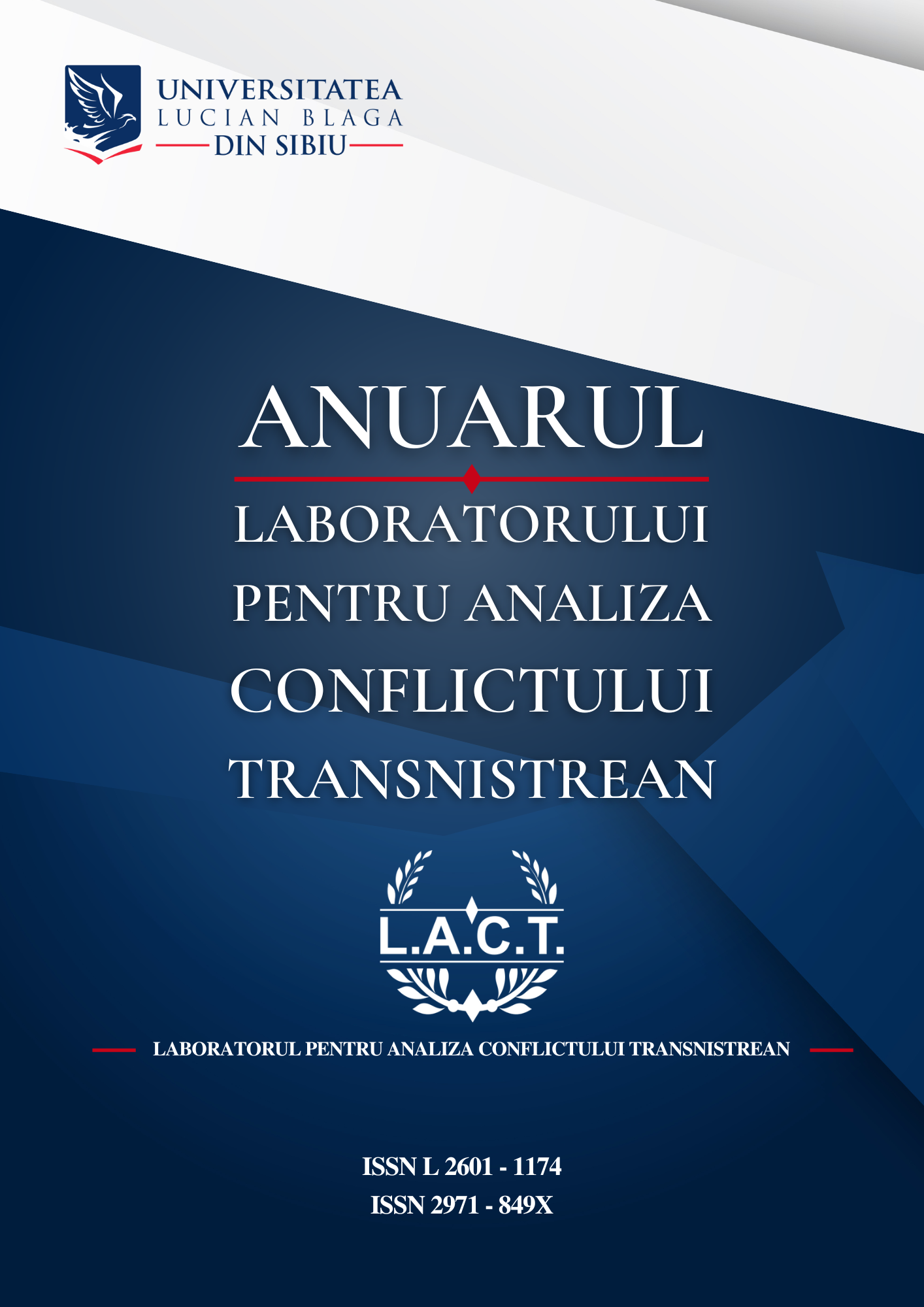REFLECȚII ASUPRA ACTIVITĂȚII OSCE ÎN PROCESUL REGLEMENTĂRII TRANSNISTRENE DIN PERSPECTIVA SECURITĂȚII UMANE
REFLECTIONS ON THE ACTIVITY OF THE OSCE IN THE TRANSNISTRIAN SETTLEMENT PROCESS FROM THE PERSPECTIVE OF HUMAN SECURITY
Author(s): Laura Maria Șandru, Marius SpecheaSubject(s): International Law, Human Rights and Humanitarian Law, Governance, Political history, Government/Political systems, International relations/trade, Security and defense, Military policy, Developing nations, Present Times (2010 - today), Post-Communist Transformation, Peace and Conflict Studies
Published by: Editura Universitatii LUCIAN BLAGA din Sibiu
Keywords: OSCE; human security; conflict resolution; Transnistria;
Summary/Abstract: After February 24, with the relaunch of the war in Ukraine, issues related to human security have again become the main concerns for public opinion. Beyond the national security, human security is important and fundamental, with all that it entails, or the period of the pandemic and the evolution of the war highlighted the fragility of the real assurance of what human security means. In this particularly tense context, the Transnistrian file became a hot point and interest for understanding and managing the security environment in the region, but which showed the limits of the OSCE's actions in the regulatory process. Officials and analysts concerned with the subject, expressed their critical opinions regarding the effectiveness of the OSCE mission in the Republic of Moldova and complained about the blockage of the regulation, as it was established and known in recent years. But beyond the visible and indisputable elements of this blockage, it is important to observe and analyze within the possible limits, the aspects of the OSCE mission from the perspective of human security. What is the connection between human security and confidence-building measures between the two banks of the Dniester? Or to what extent did these confidence-building measures promoted intensively by the OSCE have a real impact on human security in the Transnistrian regulatory process? All this can help in an integrated and more objective assessment of the situation and why not in the future improvement of approaches within the regulatory process. The unpredictability of the security environment due to war makes it impossible to build scenarios with real chances of fulfillment, but it is interesting if patterns of action can be observed and mechanisms identified through which the structural elements of the concept of human security are instrumentalized to the benefit of one side.
Journal: Anuarul Laboratorului Pentru Analiza Conflictului Transnistrean
- Issue Year: VI/2022
- Issue No: 1
- Page Range: 106-115
- Page Count: 10
- Language: Romanian

